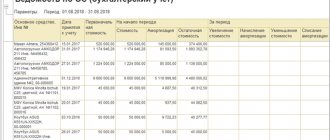Despite the fact that the state has abolished accounting for individual entrepreneurs, it will not be possible to organize a profitable business from scratch without basic accounting knowledge. Even at the stage of developing a business plan, an entrepreneur must calculate all possible expenses and expected income in order to choose the most favorable tax regime. Small businesses that manage accounting are allowed to generate simplified reporting once a year. How is accounting useful, and how to organize it correctly?
There is no obligation to keep accounting, you have the right
Accounting in Russia is regulated by Federal Law dated December 6, 2011 No. 402-FZ “On Accounting”. It also extends its effect to individual entrepreneurs (clause 4, part 1, article 2 of the Federal Law of December 6, 2011 No. 402-FZ).
An individual entrepreneur may not keep accounting if he keeps tax records in accordance with the Tax Code of the Russian Federation: he takes into account income or income and expenses and (or) other objects of taxation or physical indicators that characterize his type of activity (clause 1, part 2, art. 6 Federal Law dated December 6, 2011 No. 402-FZ). Since such accounting is carried out under any taxation system (clause 2 of article 54, clause 8 of article 346.5, article 346.24, 346.29, 346.53 of the Tax Code of the Russian Federation), an individual entrepreneur may not keep accounting in any situation.
The same rule applies to any persons who are engaged in private practice without registration as individual entrepreneurs (lawyers, notaries).
Thus, entrepreneurs are always required to keep tax records. But accounting is their right, not their obligation.
Definition of a simplified taxation system
The simplified tax system is one of the special regimes introduced for individual entrepreneurs who in 2019 meet the following criteria:
- do not engage in prohibited activities;
- have no more than 100 employees;
- annual income does not exceed 150 million rubles;
- the residual value of the property is less than 150 million rubles.
The law does not allow the use of simplified taxation system for the following operations:
- Production of goods subject to excise tax.
- Development and sale of mineral resources.
- Notarial activities.
- Advocacy.
- Banking sector.
- Insurance.
- Participation in non-state pension programs.
- Investment activities.
- Representation on the securities market.
- Pawnshop.
- Working in the gambling industry.
- Participation in a product distribution agreement.
- Government activities.
- Foreign operations.
- Issuance of microloans.
- Personnel services.
If an individual entrepreneur on the simplified tax system does anything from this list, then in the current quarter and beyond, the general system of n/a is applied to all activities.
The accrual of a single tax exempts you from paying the following obligations:
- VAT.
- Personal income tax.
- Property tax.
You can select the simplified tax system immediately upon registering an individual entrepreneur. Existing entrepreneurs who use other regimes must submit a notification to the Federal Tax Service by December 31 to switch to the simplified system. Then, subject to compliance with all standards, from January 1, the individual entrepreneur becomes a payer of the simplified tax system.
The basis for the single tax is:
- entrepreneur's income for the calendar year;
- profit (revenue minus expenses) for 12 months.
The individual entrepreneur has the right to choose one of the proposed options. The decision can only be changed starting next year upon application to the Federal Tax Service.
Tax rates:
- “income” base – 6%;
- object “revenue reduced by expenses” – 15%.
By decision of regional authorities, tariffs can be reduced to 1%, and for new individual entrepreneurs, under certain conditions, a zero rate applies.
How can an individual entrepreneur claim his right to accounting?
If an individual entrepreneur decides to conduct accounting, he must follow the requirements of Federal Law dated December 6, 2011 No. 402-FZ and by-laws on accounting (PBU, Chart of Accounts and other regulatory documents of the Russian Ministry of Finance on accounting).
First you need to decide who exactly will do the accounting for the individual entrepreneur. If an individual entrepreneur decides to conduct accounting, he is equal in status to the head of the organization. This means that he organizes accounting and storage of primary records (Part 2 of Article 7 of Federal Law No. 402-FZ of December 6, 2011). Accordingly, IP:
- or hires a chief accountant (and perhaps creates an accounting service for him),
- or entrusts the duties of an accountant to another employee,
- or entrusts accounting to a third-party company or a civil contract specialist;
- or performs the duties of an accountant personally.
However, when an individual entrepreneur exceeds the level of a medium-sized business entity, he no longer has the right to conduct accounting personally and must delegate this function to other persons (Part 3 of Article 7 of the Federal Law of December 6, 2011 No. 402-FZ). An individual entrepreneur is large if for the previous year the average number of its employees is more than 250 people and (or) income exceeds 2 billion rubles. (Clause 2 and 3 Part 1.1, Part 3 Article 4 of the Federal Law dated July 24, 2007 No. 209-FZ, Decree of the Government of the Russian Federation dated April 4, 2016 No. 265).
In order to initially express its decision to introduce accounting, the individual entrepreneur must approve its accounting policy. An accounting policy is a document in which an individual entrepreneur selects the methods of accounting and reporting he needs from the totality of all the methods proposed in PBU and other regulatory documents on accounting (Article 8 of the Federal Law of December 6, 2011 No. 402-FZ). Further, when maintaining accounting, you will need to follow the established accounting policies.
The first point of the accounting policy may just be a statement about maintaining accounting records from such and such a date in accordance with Federal Law dated December 6, 2011 No. 402-FZ.
In order to declare accounting to the state and counterparties (existing and potential), an individual entrepreneur must prepare annual financial statements and submit a copy of it to the territorial statistics body (part 2 of article 13, part 1 of article 18 of the Federal Law of December 6, 2011 No. 402 -FZ).
Individual entrepreneur taxes in 2021: changes, new laws and other news
For each change or innovation, a brief announcement will be given and a link to the corresponding article, in which I tell everything in more detail. I also recommend watching videos in which I clearly show everything and explain it popularly. Don’t be lazy, take the time, because in my videos I answer in detail many popular questions from individual entrepreneurs.
- Contributions to the Pension Fund for oneself (for pension insurance): RUB 29,354.
- Contributions to the FFOMS for yourself (for health insurance): 6884 rubles.
- Total for 2021 = 36,238 rubles
- Also, do not forget about 1% of the amount exceeding 300,000 rubles of annual income
- The maximum contribution to pension insurance with an income of more than 300 thousand rubles per year will be 29354 * 8 = 234832 rubles.
Initial accounting balance of individual entrepreneurs
Most often, an entrepreneur decides to do accounting not from the very beginning of his activity, but after working for some time. Accounting to some extent brings an individual entrepreneur closer to the status of a commercial organization. Reputable creditor banks, partners, buyers and clients treat the entrepreneur who does accounting with great confidence.
However, you must comply with regulatory requirements:
- maintain accounting continuously from the date of state registration until the date of termination of activity (Part 3 of Article 6 of the Federal Law of December 6, 2011 No. 402-FZ);
- reflect all facts of economic activity in accounting (clause 6 of PBU 1/2008);
- Reliably and completely reflect in the accounting statements the financial position, financial results of activities and changes in the financial position of the individual entrepreneur (see paragraph 6 of PBU 4/99).
Thus, if an individual entrepreneur does not conduct accounting using the double entry method from the beginning of its activities, then on the date of commencement of accounting, it is necessary to calculate the opening balances for the accounting accounts. When calculating, you will have to take into account all the property, property rights and obligations of the individual entrepreneur related to the entrepreneurial activities of the individual entrepreneur. The calculation must be done using those accounting methods that are prescribed in the accounting policy.
Features of individual entrepreneur accounting
For individual entrepreneurs, according to civil law, property is not legally divided into what is related to entrepreneurial activity and what is not. Like an ordinary citizen, an entrepreneur is liable for his obligations with all his property, with the exception of vital property from the list of Part 1 of Art. 446 of the Code of Civil Procedure of the Russian Federation (Article 24 of the Civil Code of the Russian Federation).
But for accounting purposes, such a division will have to be carried out initially and then constantly done. After all, one of the requirements when forming an accounting policy is the priority of economic content over the legal form (clause 6 of PBU 1/2008).
Accordingly, all property, property rights and debts of debtors to the individual entrepreneur, which are related to his business activities, constitute the assets of the individual entrepreneur’s balance sheet and are reflected in the corresponding accounting accounts.
For example, if an individual entrepreneur uses part of his house for business activities, he must estimate the value of this part and reflect it on account 01 “Fixed Assets” and in the balance sheet asset.
But we do not recommend splitting funds in a personal bank account. For entrepreneurial activities, an individual entrepreneur must have a separate bank account for both taxation and accounting purposes.
All obligations of an individual entrepreneur related to entrepreneurial activities form the sections of long-term and short-term liabilities of the balance sheet.
Individual entrepreneurs do not include such accounting accounts as 80 “Authorized capital”, 82 “Reserve capital”, 83 “Additional capital” and the corresponding balance sheet items. Therefore, the difference between the balance sheet asset and the balance sheet liability forms the profit of the individual entrepreneur (account 84 “Retained earnings (uncovered loss)”). When approving reporting forms, it is better to leave only the indicator of undistributed profit in the balance sheet in the “Capital and Reserves” section.
This video is unavailable
Friends! Please support my project! Tell your friends and acquaintances about my YouTube channel https://www.youtube.com/channel/UCxqU. Ask them to subscribe to my channel and support me ❤ Share my videos on your social networks







